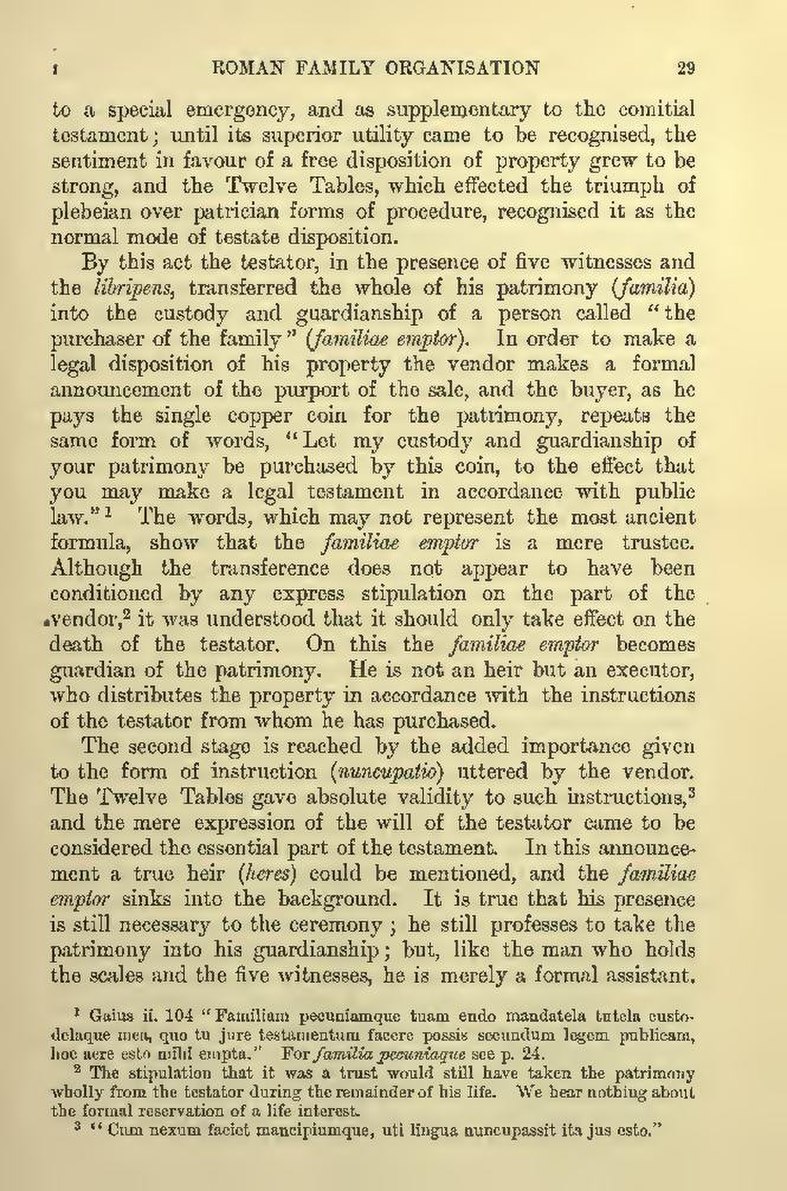to a special emergency, and as supplementary to the comitial testament; until its superior utility came to be recognised, the sentiment in favour of a free disposition of property grew to be strong, and the Twelve Tables, which effected the triumph of plebeian over patrician forms of procedure, recognised it as the normal mode of testate disposition.
By this act the testator, in the presence of five witnesses and the libripens, transferred the whole of his patrimony (familia) into the custody and guardianship of a person called "the purchaser of the family" (familiae emptor). In order to make a legal disposition of his property the vendor makes a formal announcement of the purport of the sale, and the buyer, as he pays the single copper coin for the patrimony, repeats the same form of words, "Let my custody and guardianship of your patrimony be purchased by this coin, to the effect that you may make a legal testament in accordance with public law."[1] The words, which may not represent the most ancient formula, show that the familiae emptor is a mere trustee. Although the transference does not appear to have been conditioned by any express stipulation on the part of the vendor,[2] it was understood that it should only take effect on the death of the testator. On this the familiae emptor becomes guardian of the patrimony. He is not an heir but an executor, who distributes the property in accordance with the instructions of the testator from whom he has purchased.
The second stage is reached by the added importance given to the form of instruction (nuncupatio) uttered by the vendor. The Twelve Tables gave absolute validity to such instructions,[3] and the mere expression of the will of the testator came to be considered the essential part of the testament. In this announcement a true heir (heres) could be mentioned, and the familiae emptor sinks into the background. It is true that his presence is still necessary to the ceremony; he still professes to take the patrimony into his guardianship; but, like the man who holds the scales and the five witnesses, he is merely a formal assistant.
- ↑ Gaius ii. 104 "Familiam pecuniamque tuam endo mandatela tutela custodelaque mea, quo tu jure testamentum facere possis secundum legem publicam, hoc aere esto mihi empta." For familia pecuniaque see p. 24.
- ↑ The stipulation that it was a trust would still have taken the patrimony wholly from the testator during the remainder of his life. We hear nothing about the formal reservation of a life interest.
- ↑ "Cum nexum faciet mancipiumque, uti lingua nuncupassit ita jus esto."
